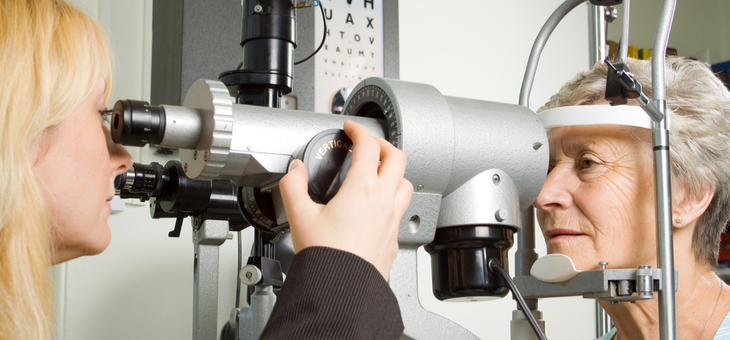In the first of a two-part series on eye health, YourLifeChoices reveals why early and frequent eye tests can detect early signs of potentially sight-threatening eye conditions.
In a recent initiative, Specsavers has partnered with the Australian Government and Diabetes Australia to promote awareness of the link between eye health and diabetes, and the need for more screening.
Dr Ben Ashby, head of optometry at Specsavers, responds to the top 10 eye health concerns for retirees. In this, the first of two articles, he focuses on eye checks – what they can reveal and what this might mean for your general health.
YourLifeChoices: What is the link between diabetes and eye health, and why should we care?
Dr Ashby: Diabetes affects eight per cent of the Australian population. Type 2 diabetes is more prevalent and more likely to develop as you age than type 1.
The bad news is that if you have diabetes, your chance of being diagnosed with diabetic eye disease increases as you age and the longer you have diabetes, the greater the chance that your eyesight will deteriorate. The good news is that individuals can do a lot to minimise the effects of diabetes, if diagnosed. Early diagnosis is key to maintaining healthy eyesight.
How do you avoid this diagnosis, or ensure early detection?
Your GP is a great ally. He or she can work with you to control your blood glucose level or refer you to an endocrinologist, if necessary.
Regular eye checks are important as most diabetic changes are visible to an optometrist.
And treatment for diabetes can benefit all other ‘body parts’. For instance, if there is a problem with your eyes, your kidneys may also be affected.
What are the earliest warning signs?
One of the earliest could be that you experience good days, then bad days, in relation to your eyesight, as it should not vary in this way. Also, changes in your near and far vision – this means your eyesight deterioration may be advanced, so you need to have this checked.
Other common signs of eye troubles are:
- vision when driving – if you find yourself moving closer to the windscreen to see
- reading – if you find yourself holding the text further away from your eyes
- soreness – if your eyes are frequently sore at the end of the day.
How often should you have your eyes checked?
For the general population, until age 65, every two years, but you may need an annual check if you have glaucoma, macular degeneration or cataracts.
Once you’re over 65,annual check-ups are a good idea. Diabetics should have an eye test as soon as they’re diagnosed, and then as advised. There will be a low frequency of check-ups if you are not at risk of eye damage. If you are considered at risk, then every year; and if at higher risk, every three months.
Are eye tests expensive?
No, they are covered by Medicare, so the test should be bulk-billed, with no out-of-pocket charges attached.
What is digital retina photography?
This is offered by many optometrists and is available with a standard bulk bill health check. It is a great record that can pick up subtle changes in your eyesight over time. Depending on the patient, it takes between 20 and 40 minutes.
Do you have regular eye checks? If not, why not? Are you aware that an eye check can give an early warning of other health problems?
Related articles:
Common eye myths
Warning signs of cataracts
Guess what happens while you sleep
Health disclaimer: This article contains general information about health issues and is not advice. For health advice, consult your medical practitioner.

